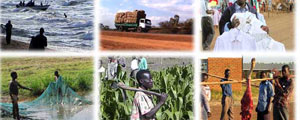
ZIMBABWE has made significant progress in stabilising the economy, but is still a long way to go regain its former status as the second largest economy in the Sadc region, African Development Bank (AfDB) Group president Donald Kaberuka said recently.
Report by Ndamu Sandu
Zimbabwe adopted the multi-currency regime in 2009, credited for stemming hyperinflation and steering the country out of a decade of recession. The country is projected to record a 5% growth rate this year, the fourth successive growth since 2009.
“Zimbabwe has got a long way to go. I hope Zimbabwe will do the right things both politically and economically so that the country, which was the second largest economy in the Sadc region, can again take off,” Kaberuka said.
Kaberuka said the implementation of the Global Political Agreement has helped bring down social tension while the use of multiple currencies has stabilised the macro-economic situation.
“But it is only to stabilise the basics,” he said.
AfBD hosts the Multi-Donor Trust Fund that is financing the rehabilitation of some of the country’s infrastructure. Kaberuka said the bank is proud of what is happening to help Zimbabwe regain its former glory.
“With our partners in Washington we will be beginning a process of examining the debt situation of that country as long as the IMF SMP (staff monitored programme) is in place which the minister (Finance minister Tendai Biti) assured me that is very soon underway,” Kaberuka said.
- Chamisa under fire over US$120K donation
- Mavhunga puts DeMbare into Chibuku quarterfinals
- Pension funds bet on Cabora Bassa oilfields
- Councils defy govt fire tender directive
Keep Reading
The SMP monitors the country’s economic reforms and is key in arrears clearance with official creditors. Biti said last week that the government would sign key documents with the IMF paving the way for a staff-monitored programme in Zimbabwe.
Zimbabwe is saddled with an external debt of over US$10 billion accrued to multilateral financial institutions such as the IMF, the World Bank, African Development Bank (AfDB) and the Paris Club.
A consultant hired by the government in 2009 revealed that the debt is unsustainable until 2029.
Last year cabinet adopted the Zimbabwe Accelerated Arrears Clearance, Debt and Development Strategy (ZAADS), a policy framework for arrears clearance and debt management. It also adopted the Zimbabwe’s Accelerated Re-engagement Economic Programme (ZAREP), an economic policy framework covering an 18–24 month period.
ZAADDS is a hybrid debt resolution strategy that includes the adoption of the traditional debt resolution initiatives and resources pledging to clear the debt.
ZAREP is designed to establish a track record of sound policies to support the government’s agenda of achieving debt relief and arrears clearance.
It seeks to build on the macroeconomic stability achieved under the authorities’ Short-term Emergency Recovery Programmes (STREP I and II) through the implementation of sound macroeconomic policies, containing and managing the public sector wage bill and securing support from development partners for debt relief.











